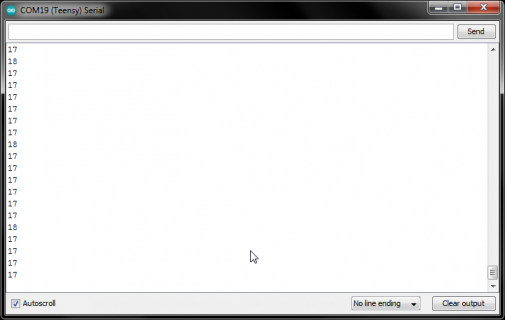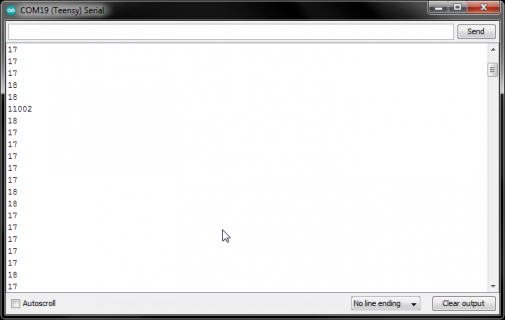equal priorities: round-robin scheduling
First answer: The program as written has asked the the executive to run two threads with equal priority. Both threads ("tasks") are written to run continuously, so the apparent gap in execution of the loop() thread is the execution of the loopSec() thread. The Teensy 4.1 has one processor core, so the threads share CPU time in a round-robin sheduling cycle. I am guessing that the default timeslice of a thread defaults to 10 msec or so. So each thread gets about 10 msec.
Traditionally, each thread (or back in the day, "task") has a priority, a timeslice (maximum continuous runtime unless interrupted by hitgher priority task), and a way to specify how to trigger its execution. When tasks have equal priority and no other way to specify how they get scheduled, they execute one after the other under the time limit specified by their respective timeslices.
Just for fun, try an experiment. Use the teensythreads call setTimeSlice(int id, unsigned int ticks) to limit the execution time of the forever loop. I assume (having never used teensythreads) that the executive will give loopSec 3 millisecond timeslices and will give the main loop 10 millisecond timeslices. If it works the way I would assume, your main loop will see time gaps of around 3 msec instead of 13 msec.
Code:
void loopSec()
{
setTimeSlice(id(), 3);
while(1)
{
}
}
Most developers who use preemptive multitasking systems give tasks that they want to run predictably higher priority, and with either a time-based or event-based trigger.
Real time operating systems ("executives") and the many many approaches to specifying their behavior has been a research topic for decades, this comment does not begin to cover the topic.

I used ftrias'
teensythreads github reference for this comment.



